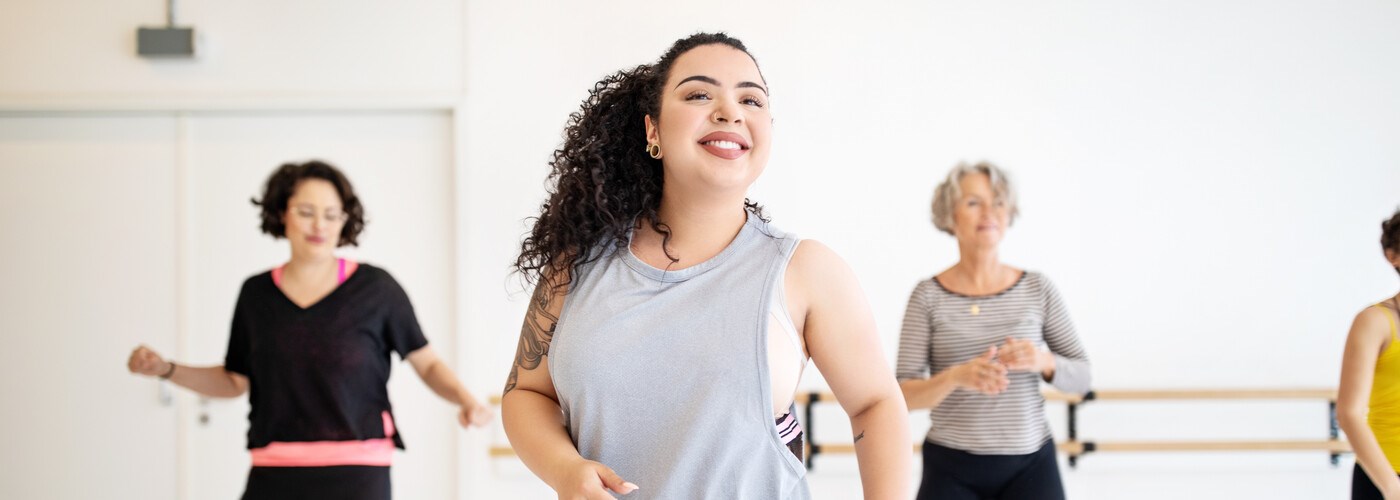What Should You Eat Before a Workout?
Whether you’re a veteran athlete or just starting out on your fitness journey, preparation is key to your success.
Of course, that means warming up properly, wearing the right gear, and organising the ideal exercise schedule – but it also means fuelling your body with the right foods and nutrients before a workout.
In this article, we will explore what to eat before gym sessions, as well as how long to eat before workouts begin, helping you get the best results from your exercise routine.
How long before a workout should you eat?
If you want to get the most out of your gym session, you need to perfectly time your pre-workout food. It’s all about finding the right balance between feeling bloated and giving your body a chance to digest the essential nutrients, helping you hit that new personal best.
Generally speaking, the perfect pre-workout meal-time is between two to three hours before you start exercising. This gives your body the time it needs to turn food into fuel before the gym, letting you burn more energy when running, swimming, lifting weights, or doing whatever you do to stay in shape.
However, if you are up early and plan to hit the gym early or going on a morning run try to eat a small easily digestible snack like a banana, glass of milk or a smoothie.
What happens if you exercise after eating?
We get it; sometimes, your schedule is too hectic to properly plan your pre-workout meal in enough time. The question is, is it better to squeeze a big meal in closer to your exercise session or should you forego food until after your workout?
Well, the answer is somewhere in-between.
If you do exercise straight after eating a pre-workout meal, you not only risk hindering your performance and the effectiveness of the exercise, but you may also experience uncomfortable sides effects, such as nausea, cramping, and vomiting.
Similarly, neglecting your nutritional intake before the gym and exercising on an empty stomach will leave you with less energy, which minimises the results of your workout. You may also feel light-headed and nauseous, due to low blood sugar levels.
So, if you do forget to eat in good time, we recommend having a good pre-workout snack instead. It will keep your blood sugar levels in check, while avoiding any issues with bloating or digestion.
Best things to eat before a workout
With the timing of your pre-workout food sorted, you now need to think about exactly what snacks and meals are best suited to your exercise routine. We’ve broken down the best pre-workout meals into the following food groups, with recommendations for different delicious dishes:
1. Carbs
When you exercise, your body relies on glucose to fuel your muscles – which comes from the carbohydrates you eat. The more carbs in your pre-workout meal, the longer and harder you can exercise.
Eating carbs after and before the gym also plays an important role in recovery. That same glucose that fuels your muscles also replenishes you glycogen stores, bringing your energy levels back up.
Of course, it’s not just about piling potatoes into your pre-workout meal – you need to pick healthy carbs, such as brown rice, whole-grain pasta, and fruits and veg.
Best carbohydrate foods to eat before a workout:
Before a morning workout: Porridge, chia seeds and yoghurt, banana spinach smoothie are all good pre-workout foods.
Before an afternoon workout: Vegetable soups, sandwiches with wholegrain bread, brown rice salads.
Before an evening workout: Stir fry brown rice bowl, healthy curry or dals, whole-grain pasta dishes are much better pre-workout foods than high sugar performance drinks.
2. Protein
You’ve likely seen the protein shakes accompanying dedicated gym goers or overheard them talking up the perks of protein – and for good reason!
The protein you eat in a pre-workout meal is essential for building, repairing, and maintaining muscle tissue – which is how your body gets stronger after exercise. Much like the best pre-workout foods with high carbs, protein helps cut down on your recovery time and lessen the aches and pains of an intense gym session.
Examples of the best pre-workout snacks and meals that are packed with protein include: lean meats, fish, eggs, nuts, and seeds.
Best protein foods to eat before a workout:
Before a morning workout: Scrambled egg, Greek yoghurt (can be topped with nuts, seeds and a handful of blueberries), avocado on toast are all good pre-workout foods.
Before an afternoon workout: Veggie tostadas, tuna salad and turkey salad sandwich are delicious and filling pre-workout meal options.
Before an evening workout: Chicken wraps, salmon and potatoes and steak burrito bowls pack a flavour and energy punch.
3. Fats
While it might not seem like eating ‘fats’ and exercising would go hand-in-hand, fats are a major source of energy that help push your workout into personal best territory.
Pre-workout foods full of fats are broken down much more slowly in your body, providing a sustained source of fuel for exercise in the gym or at home, rather than just a quick burst of energy. In particular, unsaturated fats also have anti-inflammatory properties, reducing joint pain and stiffness after a particularly pressing workout.
If you’re looking to eat more healthy fats in a good pre-workout meal, look to the likes of fatty fish, olive oil, avocados, nuts, and seeds.
Best healthy fat foods to eat before the gym or a workout:
Before a morning workout: Yoghurt and almonds, overnight oats, peanut butter on toast.
Before an afternoon workout: Tuna sandwich, sardines on toast, cream cheese on a wholegrain bagel.
Before an evening workout: Pan-fried mackerel, tuna pasta, tofu curry.
To find out more about the best food for pre-workout prep, head over to our nutrition page on our Be Healthy hub. Here, you can find information on the best pre-workout snacks and meal recipes, such as our Cajun honey salmon, as well as information on how healthy eating can help mental health.
Medically reviewed in March 2024.


